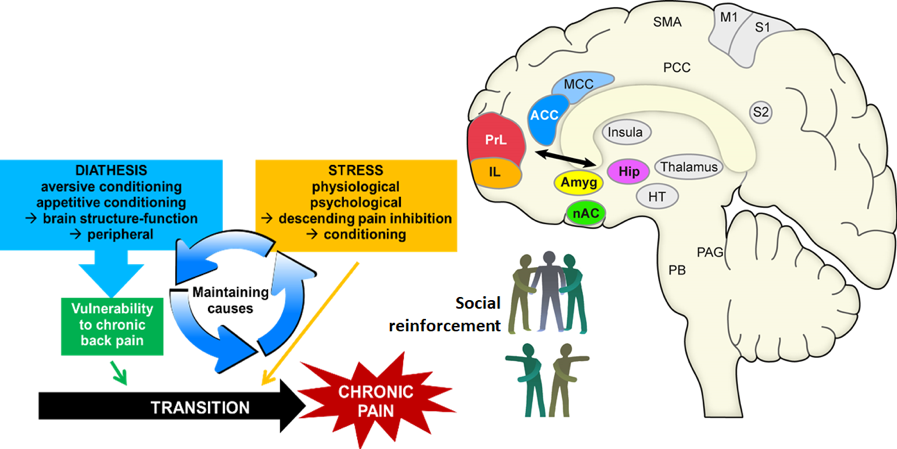Prof. Dr. Frauke Nees
Institute of Medical Psychology and Sociology, University Medical Center Schleswig-Holstein, Campus Kiel
Prof. Dr. Dr. h.c. mult. Herta Flor
Department of Clinical Psychology and Neuropsychology, Central Institute of Mental Health, Medical Faculty Mannheim, Heidelberg University
The role of learning, stress and underlying brain circuits involving prefrontal-limbic interactions in the development of chronic back pain
We proposed that emotional learning and accompanying plasticity in emotion-related brain circuits is a core characteristic of chronic back pain in contrast to a focus on nociceptive circuits in acute pain. While a number of studies have shown that psychosocial factors predict persistent pain, little is known how these relate to altered learning processes and the role of stress analgesia, and about the associated changes in brain structure and function that might predict persistent pain.
Our data from the first funding period indicate disturbed emotional learning in interaction with stress sensitivity and comorbidity and concomitant altered somatosensory-limbic interactions as determinants of chronicity. In the second funding period we now extend our analyses to the role of social learning and related brain structure-function circuits in pain chronicity. Specifically, based on operant learning theory, we assume that significant others with solicitous compared to non-solicitous responses to the patients’ pain behaviors enhance pain perception and activation in brain circuits involved in affective processing.
We expect to be able to link learning-related predictors of chronicity with those resulting from brain structure-function analyses and epidemiological studies, and to gather new data of the role of social reinforcement and brain correlates. Finally, we use transcranial magnetic stimulation and neurofeedback to obtain causal information on involved brain circuits, related behaviors and psychological factors and can thus derive new assessment as well as treatment options.




















